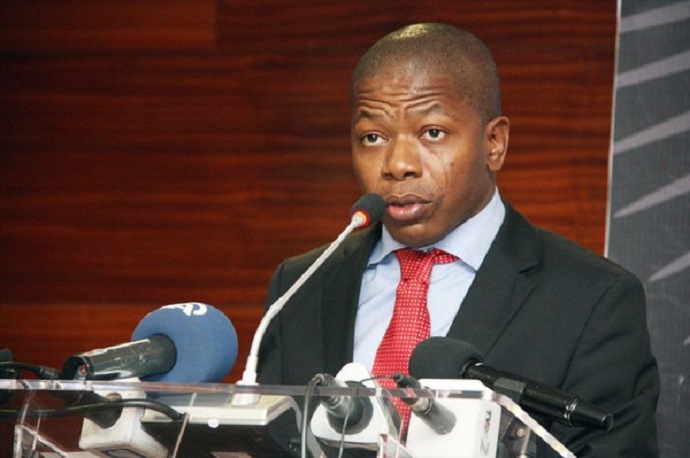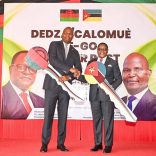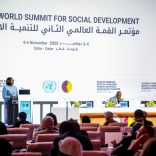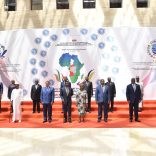Top officer accuses S.Africa police minister of corruption
Head of employers’ confederation calls for wage freeze – AIM report

TVM (File photo) / Agostinho Vuma
The chairperson of the Confederation of Mozambican Business Associations (CTA), Agostinho Vuma, on Friday demanded a wage freeze in the public sector, to halt the growth in public expenditure.
Speaking in Maputo on Friday, at a meeting of the Business Environment Monitoring Council, Vuma called for further austerity measures, even though the living standards of Mozambican workers are already falling
Vuma’s proposal comes at a time when real wages have fallen, thanks to the spurt in inflation in 2016. Inflation that year was 23.67 per cent, according to the National Statistics Institute (INE). The rises in the statutory minimum wages that took effect in April came nowhere near compensating for this. Those rises, depending on sector, ranged from 5.5 to 21 per cent. The minimum wage in the public administration is now 3,996 meticais (66 US dollars) a month. It is quite impossible for a family to live decently on this amount.
Vuma went further – he wanted to abolish the traditional New Year bonus, known as “the thirteenth month”, since it is equivalent to an extra month’s payment of the basic wage, and to freeze promotions in the public sector. He claimed that these deeply unpopular measures were necessary to deal with “imbalances”.
As for capital expenditure, Vuma called for greater effectiveness in public investment. “Economic infrastructures should be based on indicators of efficiency”, he said. He claimed that such measures “could increase the efficiency of our economy, and improve the productivity of the private sector”.
He believed this would reduce the pressure on the state treasury, which would no longer be forced to issue treasury bonds to finance the state. He claimed that it was the treasury bonds which led to the current high interest rates imposed by the Bank of Mozambique.
The Business Environment Monitoring Council brings together representatives of the government and private business, and is intended to manage the Public-Private dialogue.
It is chaired by Prime Minister Carlos Agostinho do Rosario, who told the meeting that the private sector should make efforts to integrate informal operators into the formal economy.
He wanted to see reforms that would contribute to increased competitiveness. Reforms the government is working on include simplifying the licensing of business activities, making it easier for investors to obtain visas, revising the Commercial Code and the legal regime for property registration. The latter measures, said Rosario, would stimulate trade and provide greater security for the real estate business.
“We shall continue to improve the legislation”, he promised, “in order to ensure greater integration of informal operators into the formal sector of the economy, so that they may benefit from the legal facilities created to develop their businesses”.
Rosario noted that this year economic growth is expected to be only 4.7 per cent, with an average 12 monthly inflation rate of 18 per cent. But the government was optimistic that in 2018 the growth rate will rise to 5.3 per cent, and average inflation will fall to 11.9 per cent.
Vuma accepted the Prime Minister’s challenge to formalize the informal sector. The estimate from the International Monetary Fund (IMF) is that 40 per cent of Mozambique’s Gross Domestic Product is produced in the informal sector.
“This estimate is very high and cannot be ignored”, said Vuma. “We must gradually bring the informal sector into the system and thus expand the tax base”.
He called for a fixed fee to be charged on informal economic activities, so that all informal operators contribute to the public treasury.
Vuma believed that, if the government took “courageous measures” towards the informal sector, state revenue could rapidly increase.












Leave a Reply
Be the First to Comment!
You must be logged in to post a comment.
You must be logged in to post a comment.